« Return to all search results
Title Search Results
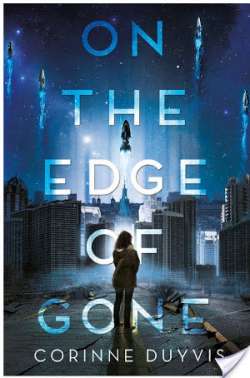
A thrilling, thought-provoking novel from one of young-adult literature’s boldest new talents. January 29, 2035. That’s the day the comet is scheduled to hit—the big one. Denise and her mother and sister, Iris, have been assigned to a temporary shelter outside their hometown of Amsterdam to wait out the blast, but Iris is nowhere to be found, and at the rate Denise’s drug-addicted mother is going, they’ll never reach the shelter in time. A last-minute meeting leads them to something better than a temporary shelter—a generation ship, scheduled to leave Earth behind to colonize new worlds after the comet hits. But everyone on the ship has been chosen because of their usefulness. Denise is autistic and fears that she’ll never be allowed to stay. Can she obtain a spot before the ship takes flight? What about her mother and sister? When the future of the human race is at stake, whose lives matter most?

Stranded on an uninhabited island after their private plane crashes, thirty-year-old Anna Emerson and sixteen-year-old T.J. Callahan, her tutee, struggle to survive and, as the months pass, slowly fall in love.
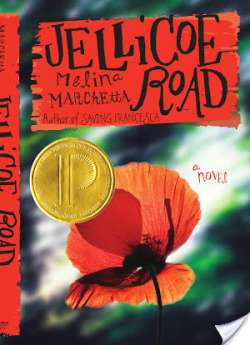
"What do you want from me?" he asks. What I want from every person in my life, I want to tell him. More. Abandoned by her mother on Jellicoe Road when she was eleven, Taylor Markham, now seventeen, is finally being confronted with her past. But as the reluctant leader of her boarding school dorm, there isn't a lot of time for introspection. And while Hannah, the closest adult Taylor has to family, has disappeared, Jonah Griggs is back in town, moody stares and all. In this absorbing story by Melina Marchetta, nothing is as it seems and every clue leads to more questions as Taylor tries to work out the connection between her mother dumping her, Hannah finding her then and her sudden departure now, a mysterious stranger who once whispered something in her ear, a boy in her dreams, five kids who lived on Jellicoe Road eighteen years ago, and the maddening and magnetic Jonah Griggs, who knows her better than she thinks he does. If Taylor can put together the pieces of her past, she might just be able to change her future.
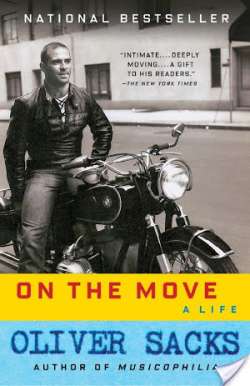
When Oliver Sacks was twelve years old, a perceptive schoolmaster wrote in his report: “Sacks will go far, if he does not go too far.” It is now abundantly clear that Sacks has never stopped going. From its opening pages on his youthful obsession with motorcycles and speed, On the Move is infused with his restless energy. As he recounts his experiences as a young neurologist in the early 1960s, first in California, where he struggled with drug addiction, and then in New York, where he discovered a long-forgotten illness in the back wards of a chronic hospital, we see how his engagement with patients comes to define his life. With unbridled honesty and humor, Sacks shows us that the same energy that drives his physical passions—weight lifting and swimming—also drives his cerebral passions. He writes about his love affairs, both romantic and intellectual; his guilt over leaving his family to come to America; his bond with his schizophrenic brother; and the writers and scientists—Thom Gunn, A. R. Luria, W. H. Auden, Gerald M. Edelman, Francis Crick—who influenced him. On the Move is the story of a brilliantly unconventional physician and writer—and of the man who has illuminated the many ways that the brain makes us human.
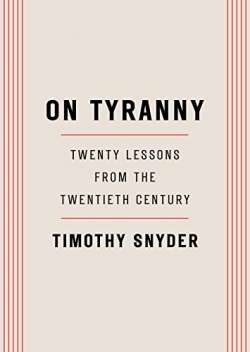
#1 New York Times Bestseller The Founding Fathers tried to protect us from the threat they knew, the tyranny that overcame ancient democracy. Today, our political order faces new threats, not unlike the totalitarianism of the twentieth century. We are no wiser than the Europeans who saw democracy yield to fascism, Nazism, or communism. Our one advantage is that we might learn from their experience.
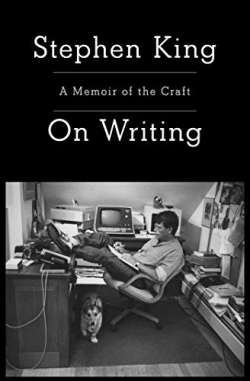
In 1999, Stephen King began to write about his craft -- and his life. By midyear, a widely reported accident jeopardized the survival of both. And in his months of recovery, the link between writing and living became more crucial than ever. Rarely has a book on writing been so clear, so useful, and so revealing. On Writing begins with a mesmerizing account of King's childhood and his uncannily early focus on writing to tell a story. A series of vivid memories from adolescence, college, and the struggling years that led up to his first novel, Carrie, will afford readers a fresh and often very funny perspective on the formation of a writer. King next turns to the basic tools of his trade -- how to sharpen and multiply them through use, and how the writer must always have them close at hand. He takes the reader through crucial aspects of the writer's art and life, offering practical and inspiring advice on everything from plot and character development to work habits and rejection. Serialized in the New Yorker to vivid acclaim, On Writing culminates with a profoundly moving account of how King's overwhelming need to write spurred him toward recovery, and brought him back to his life. Brilliantly structured, friendly and inspiring, On Writing will empower--and entertain--everyone who reads it.

Kenji Miyazawa is one of modern Japan’s most beloved writers, a great poet and a strange and marvelous spinner of tales, whose sly, humorous, enchanting, and enigmatic stories bear a certain resemblance to those of his contemporary Robert Walser. John Bester’s selection and expert translation of Miyazawa’s short fiction reflects its full range from the joyful, innocent “Wildcat and the Acorns,” to the cautionary tale “The Restaurant of Many Orders,” to “The Earthgod and the Fox,” which starts out whimsically before taking a tragic turn. Miyazawa also had a deep connection to Japanese folklore and an intense love of the natural world. In “The Wild Pear,” what seem to be two slight nature sketches succeed in encapsulating some of the cruelty and compensations of life itself.
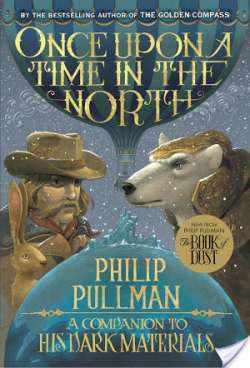
"A companion to His dark materials"--Cover.
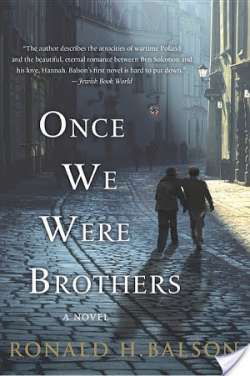
The gripping tale about two boys, once as close as brothers, who find themselves on opposite sides of the Holocaust. "A novel of survival, justice and redemption...riveting." —Chicago Tribune, on Once We Were Brothers Elliot Rosenzweig, a respected civic leader and wealthy philanthropist, is attending a fundraiser when he is suddenly accosted and accused of being a former Nazi SS officer named Otto Piatek, the Butcher of Zamosc. Although the charges are denounced as preposterous, his accuser is convinced he is right and engages attorney Catherine Lockhart to bring Rosenzweig to justice. Solomon persuades attorney Catherine Lockhart to take his case, revealing that the true Piatek was abandoned as a child and raised by Solomon's own family only to betray them during the Nazi occupation. But has Solomon accused the right man? Once We Were Brothers is Ronald H. Balson's compelling tale of two boys and a family who struggle to survive in war-torn Poland, and a young love that struggles to endure the unspeakable cruelty of the Holocaust. Two lives, two worlds, and sixty years converge in an explosive race to redemption that makes for a moving and powerful tale of love, survival, and ultimately the triumph of the human spirit.
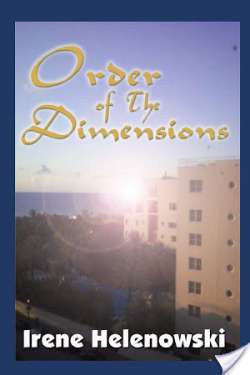
When Jane Kremowski first began her graduate studies in physics at Madison State University in Wisconsin, little did she know where her work would take her. Now, she is embroiled in a multitude of dimensions all leading to different outcomes. She and her colleagues therefore must act wisely in order to take and keep away the Order of Dimension from falling into the wrong hands for the sake of her loved ones.
